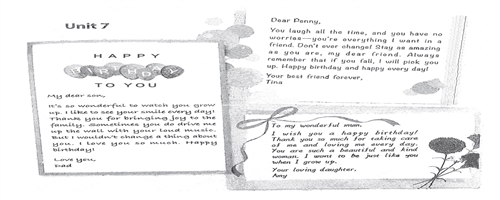Zhuang Zi(369 B. C.~286 B. C.), with his given name as Zhou, was a key figure of Taoism following Lao Zi. He was born at the town of Meng (Northeast of the present-day Shangqiu, Henan Province) of the Song State.
庄子(约公元前369年~公元前286年),名周,宋国蒙(今河南商丘东北)人,是继老子之后道家学派的代表人物。
He once worked as an official in a varnish free farm before resigning to lead a reclusive life.
曾做过漆园吏,后隐居乡里,与统治者采取了不合作的态度。
The book bearing his name has 33 chapters survived. The traditional view is that Zhuang Zi penned the first seven “inner" chapters and his disciples and other thinkers contributed the other parts (the “outer" and “miscellaneous" chapters).
《庄子》现存33篇,分内篇、外篇和杂篇三部分。一般认为,内篇7篇为庄子自著,反映了他的主要思想。
Similar to Lao Zi's philosophy, Zhuang Zi believed that the “Tao" is the origin of everything in the universe. However, the “Tao" Zhuang Zi referred to is an omnipresent and infinite concept in nature.
庄子继承了老子关于“道”为宇宙万物本源的思想,但庄子之“道”无所不在,无始无终,是总体性的。
Zhuang Zi transformed Lao Zi's outlook on life into a spiritual realm of absolute freedom, a“free and easy wondering" state.
在天道观上,庄子也讲“天”,但他的天是指自然,自然生成即为天。
This state can be achieved, according to Zhuang Zi, through a variety of complicated introspective experiences rather than pursuing endless desires in society.
庄子把老子的人生哲学转化为以“逍遥游”命名的人生境界,一种绝对自由的精神境界。为达到这种境界,庄子主张以“心斋”、“物化”、“丧我”、“虚己”等内心的深刻体验去代替社会的无限多样的追求。
The experience of“xinzha(mindfasting)” means the freedom from all preoccupations, that is, an attitude free from materialism and a complete unity with nature.
所谓“心斋”就是“虚而待物”,对外物采取一种“虚”的态度,即超功利、超现实的态度,排除一切外界干扰,忘却功名利禄,全神贯注,在顺乎自然中与自然融为一体,返璞归真。
By comparing the sophisticated and competitive social reality with the harmonious and tranquil nature, Zhuang Zi put forward the notion of "wuhua" (the transformation of things) and appealed to the return of one's suppressed soul back to nature.
“物化”是拿被异化了的对立相争的社会现实与和睦相处、与世无争的自然作对比,使人被现实所压抑了的感情归向自然,恢复人的本性。
Zhuang Zi's philosophy of worshipping the nature often leads to the pursuit of a personality of aloofness.
庄子崇尚“自然”的人生观表现出一种对清高孤傲、遗世独立人格的执著追求。
The philosophical basis of this aloofness is reiativism, that is, in his own words, “The universe and I came into being together; I and everything therein are One.”
这种出世态度的哲学基础是相对主义,即“天地与我并生,而万物与我为一”的齐物论。
Only through the equivalence of all things can one's real self fuse into the world, thus the spiritual emancipation of humanity can be achieved.
庄子认为世界上的万物都是没差别的,齐一的。等万物,齐生死,无是非,只有连“我”也融化到万物之中去了,人也就获得了精神上的彻底解放。





 。
。